Does Shampoo Expire? Is It Okay To Use After The Expiry Date?
Keep a check on these points when selecting the shampoo of your choice.
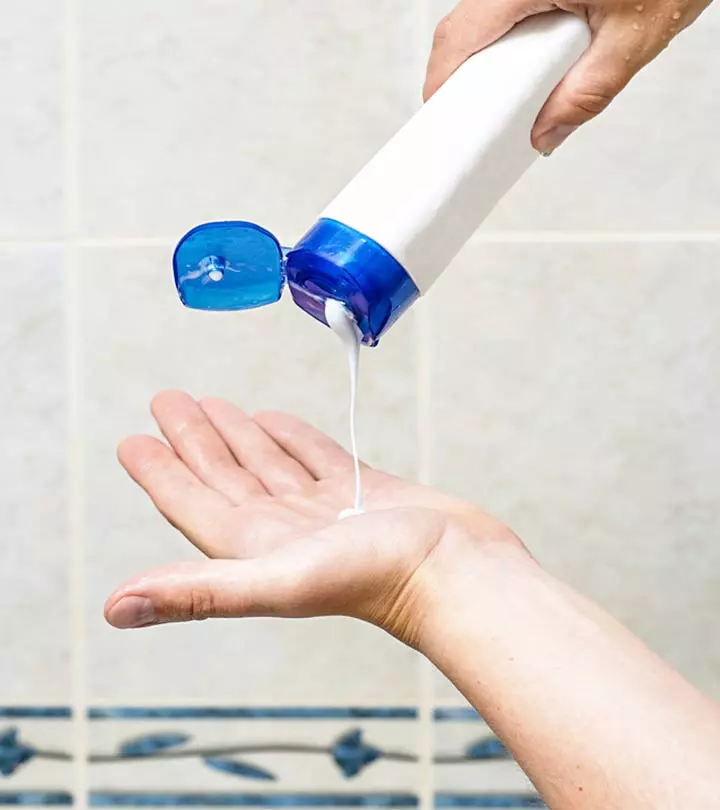
Image: Shutterstock
Can your shampoo expire? Can you use a shampoo after it is well past its expiration date? How would using an expired shampoo impact your hair? Keep reading to know how your shampoo’s shelf life impacts it and if it is safe to use it past its expiration date. Some also believe an expired shampoo can cause hair damage. How true is this? Get the right information before you decide to use one of those umpteen shampoo bottles you’ve hoarded over the years!
In This Article
Can Shampoos Go Bad?
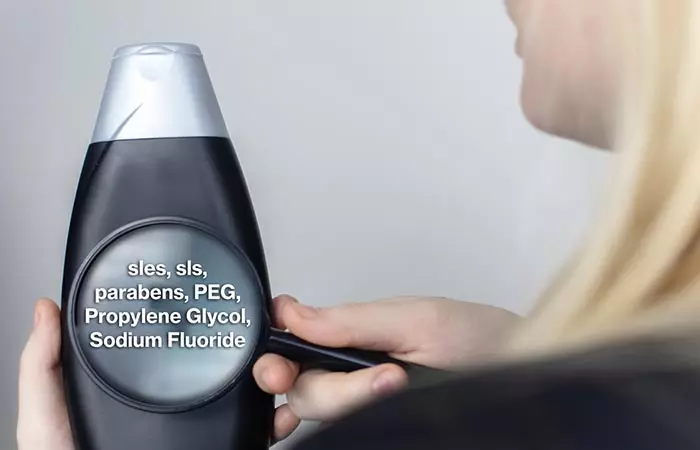
So, does shampoo expire? There is no concrete evidence to prove that it does. To understand shelf life and stability better, its important to know what goes into a shampoo. Most shampoos contain (1):
- Detergents or surfactants (e.g., lauryl sulfates, sulfosuccinatesi Organic compounds that act as a surfactant, cleansing, foaming, and degreasing hair by binding to dirt and grease in it. , soapwort, agave)
- Conditioners (e.g., hydrolyzed silk, dimethicone)
- Thickeners (e.g., sodium chloride, PEG 150)
- Preservatives (e.g., sodium benzoate, parabensi Synthetic preservatives that prevent the growth of bacteria, fungi, or molds used to prolong the shelf life of products. , DMDM hydantoin)
- Special additives (e.g., vitamins, tea tree oil, beer)
- Fragrances (e.g., essential oils, rose water)
- Sequestering agentsi Agents that bind to magnesium and calcium ions and prevent them from forming insoluble soap that coats the hair and makes it look dull. (e.g., polyphosphates, EDTA)
- Opacifiersi Additives that make shampoos or cosmetic products look less transparent and impart a creamy and pearly texture. (e.g., glycol distearate)
- pH adjusters (e.g., glycolic acid, citric acid)
- Active cleansing agents (only in medicated shampoos) (e.g., tar derivatives, salicylic acid, selenium sulfide)
Almost all of the ingredients are stable chemical or biochemical derivatives. However, certain ingredients may have a limited shelf life and thereby affect the shampoos activity. Ketoconazole, an active component of antifungal shampoos, is one such ingredient that has a shelf life of about 15 months (2).
So, lets answer the most important question.
 Quick Tip
Quick TipKey Takeaways
- Most of the ingredients in shampoos are stable chemical or biochemical derivatives but certain ingredients may have a limited shelf life and affect the usability of the product after a span of time.
- Storage, composition and handling are key factors that determine whether a shampoo has gone bad or still works well and harmlessly.
- Odor, changes in physical appearance or the presence of mold or fungi can indicate that a shampoo has expired and is not suitable for further use.
How Long Do Shampoos Last?
It is difficult to estimate the viability of products like shampoos, conditioners, and other cosmetics. Some work well even 2 years after opening while some go bad within 6 months. It depends on a few factors:
- Composition:
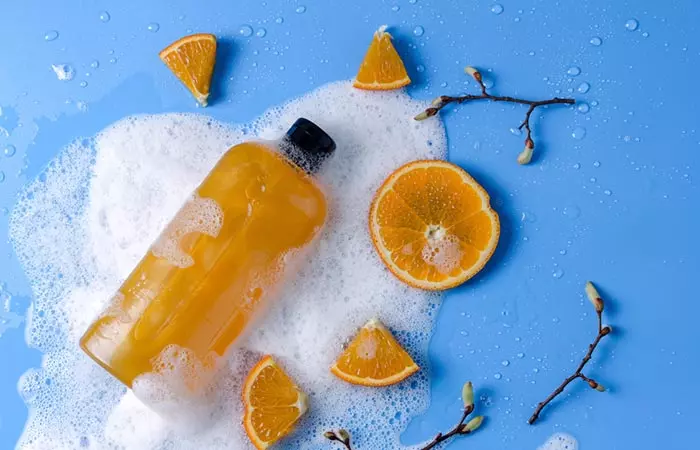
Natural ingredients in shampoo may decrease its shelf life. This is where it becomes necessary to add preservatives. So, if you are buying preservative-free, all-natural, organic shampoos, or making your homemade shampoos using natural ingredients, you may have to use them up quickly.
- Storage Conditions:
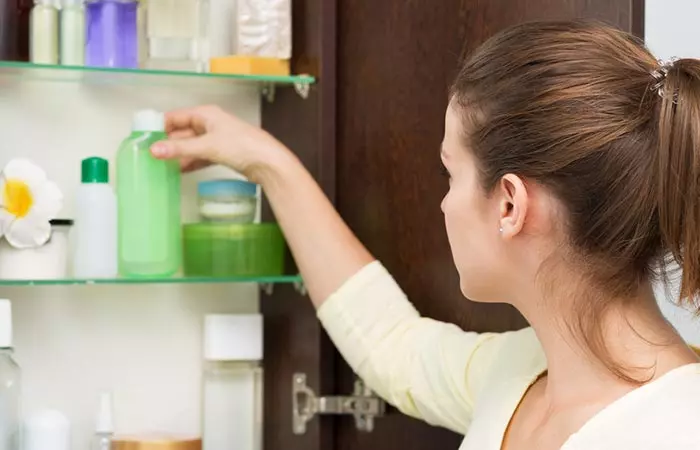
A 1986 study conducted in the USA found that shampoo preservatives lose their effect over time when stored at higher temperatures. When stored at 49°C, shampoos may go bad within 1-3 months (3). So, follow the manufacturers recommendations and store them in a cool and dry place.
- Handling And Contamination: Like most cosmetics, shampoos also run the risk of microbial contamination. When you draw out the shampoo by hand or share a bottle of shampoo with someone who has used dirty hands things can go awry.
Using hands or fingers to extract shampoo out of a container may introduce bacteria or fungi in the formula. When coupled with improper storage conditions, these microbes can survive in the shampoo for up to 30 months (3). No amount of preservative can restore or preserve the product in such cases.
- Authenticity: Look for authenticity seals and sealed shampoo containers. You could get tricked into buying fake/counterfeit expired products that are sold for a lower price. Expired shampoos can also be rebottled and repurposed as new ones. It is, therefore, important to buy from a well-known source/seller or directly from the manufacturer.
Does the expiration of a shampoo depend on its ingredients? There are different different types of shampoos, each with its own shelf-life and distinct ingredients. Learn more about their longevity in the following section.
Natural Shampoo Vs. Chemical Shampoo: Which Expires Faster?
As discussed above, typically, chemical shampoos contain artificial preservative ingredients like parabens. These are antimicrobial agents that eliminate microorganisms in the shampoo bottles, thus improving the shelf life of the product (4). Since natural shampoos are made using more environmentally friendly, biodegradable ingredients, they tend to go bad faster.
However, this does not imply that chemical shampoos are a better choice. Recent studies have shown that parabens may act as endocrine-disrupting chemicals, which means they may potentially block or interfere with hormones related to the human endocrine system (5).
Eventually, both natural and chemical shampoo formulas expire. Hence, it is best to choose one with safe and suitable ingredients and know how to identify expired formulations. The following section explains the same.
How Can You Tell If Shampoo Is Expired?
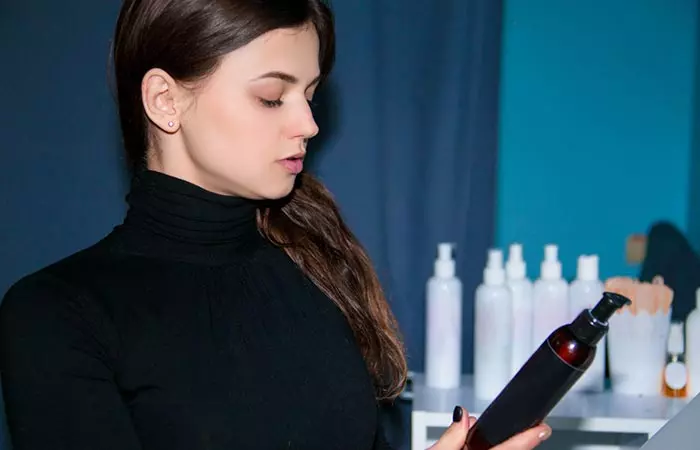
In most cases, it is not easy to identify if the shampoo has gone bad just by looking at the bottle. Also, very few brands/manufacturers endorse the shelf life of their products as it is not mandatory to share these details (6).
To make matters worse, there are no laws or regulations that require certain cosmetics to print specific shelf lives or expiration dates on their labels. Regulatory bodies like the USFDA hold manufacturers responsible for product safety (6).
So, unless there is an evident physical change in the shampoo, you may not know if it has expired. Here are a few changes to look out for:
- Check the crimp, back, bottom, or packaging material for manufacturing and expiry date.
- If no such information is printed, look for a symbol that looks like a small container with the lid off. It should have a number with the letter M printed. This indicates the number of months you can use the product after opening. For instance, 12M is 12 months, 15M is 15 months, 24M is 2 years, and so on.
- If a shampoo has not been in use for a while, swirl the bottle to shake it well. Check for any lumps or color changes.
- Some oil-based formulas can separate into layers. If they have become distinct and immiscible, it is time to discard the shampoo.
- Smell or odor is another key indicator. Don’t use it if you catch an unusual odor coming off the shampoo bottle.
- Natural, herbal, and/or Ayurvedic shampoos may have a shorter shelf life. They may also release oils and spoil the packaging. Handle and dispose of such products with care.
- Fungi, molds, and bacterial growth may occur on the surface of the formula if the shampoo is left open. Don’t open, sniff, or touch such bottles.
- Old shampoos either don’t lather well or leave a soap scum. They make your hair gummy and straw-like.
- If it just does not feel right to touch, don’t use it!
 Did You Know?
Did You Know?Is It Safe To Use Expired Shampoo?
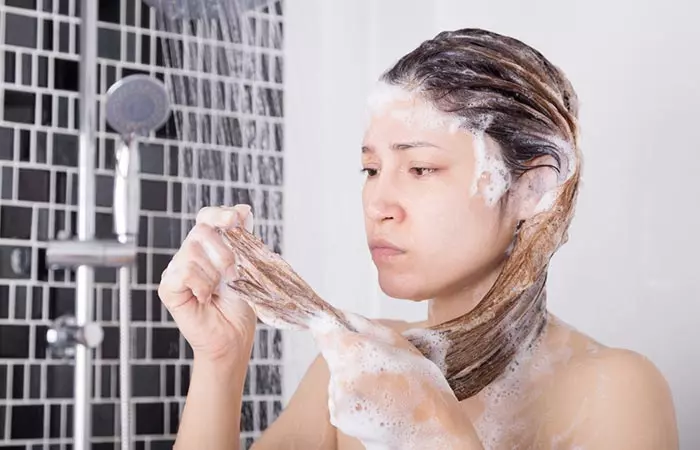
The answer to this depends on whether you are using a preservative-free shampoo or not. In the absence of preservatives, some shampoos may undergo chemical changes. Improper storage can accelerate such changes (3).
Such shampoos may feel different on your hair. They may start to leave soap scum or lather less than usual.
They could also have bacterial or fungal growth invisible to the eye. Using contaminated shampoos may trigger undesired side effects on your hair, scalp, and skin, and using these products can negatively impact our hygiene. This could often happen with natural or organic shampoos and hair care products.
However, there is no scientific evidence to prove any of these effects. Some unopened chemically stable shampoos may work perfectly even after 2 years of manufacture or purchase.
 Quick Tip
Quick TipChemicals in expired shampoos may react differently once they reach their expiration. Most branded shampoos contain chemicals like SLES, SLS, ammonia, etc., that can be harmful.
Infographic: Top 5 Key Factors To Consider Before Using An Old Shampoo
Using expired or old shampoos always comes with its share of side effects or risk factors, such as hair damage and scalp issues. Once the shampoo is past its expiry date, the formula begins to degrade. Hence, it is important to check its condition once before deciding to use it. Check out the infographic below to learn what key factors you need to consider before using an old shampoo.

Illustration: StyleCraze Design Team
The Bottom Line
When your shampoo expires, its formulation starts to degrade, and if it is way past its expiry date, the possibility of fungi and mold growth cannot be denied. It is recommended to avoid buying shampoos that have been opened or abandoned in the aisle. First, check the bottle thoroughly to determine the date of expiry. Then, you need to observe and monitor your expired shampoos for any visual signs of change. You could try a patch test if you don’t recognize anything out of the ordinary in an unopened shampoo bottle. In any scenario, don’t leave the shampoo on your bathroom rack until it expires. It can be used, donated, or discarded. It is essential to be aware of the expiration date for all your beauty products and personal care products, as expired products can be harmful for you. Above all, keep track of what you have purchased and how much you splurge. Buying only what you need saves a great deal of time and trouble.
Frequently Asked Questions
What can I do with expired shampoo?
It is best to throw away the expired shampoo and avoid using it to prevent harmful side effects. It can either be discarded in the trash or composted if natural.
Can using expired shampoo lead to scalp issues?
Yes, expired shampoo does have the potential to cause scalp issues. This happens as it may lose its effectiveness and harbor bacteria, thereby leading to irritation or allergic reactions.
Is shampoo good after 5 years?
No, a shampoo is not good for use after 5 years. In fact, it may not be as effective even after 18 months from the date of manufacture.
Can old shampoo cause baldness?
It is unlikely that expired or old shampoo causes hair loss or baldness. But it may cause itchiness due to changes in the chemicals used in its formulation.
How long is shampoo good for after its expiration date?
Depending on the ingredients and preservatives used in shampoos, they have a shelf life of six months to eighteen months. Post expiry, there is a possibility of fungal or mold growth. An unopened bottle of shampoo can last for 2-4 years.
Illustration: Does Shampoo Expire? Is It Okay To Use After The Expiry Date?

Image: Stable Diffusion/StyleCraze Design Team
Check out the video below to learn how a few creative ways to use your expired shampoo. It allows you to make the most of your hair care product in other aspects of your life.
References
Articles on StyleCraze are backed by verified information from peer-reviewed and academic research papers, reputed organizations, research institutions, and medical associations to ensure accuracy and relevance. Read our editorial policy to learn more.
- Shampoo and Conditioners: What a Dermatologist Should Know?
https://www.ncbi.nlm.nih.gov/pmc/articles/PMC4458934/ - Stability assessment of ketoconazole in aqueous formulations
https://pubmed.ncbi.nlm.nih.gov/10722946/ - Determination of shampoo preservative stability and apparent activation energies by the linear regression method of preservative efficacy testing
https://citeseerx.ist.psu.edu/document?repid=rep1&type=pdf&doi=d780db0a2e49dfd3123c2290caf39804583afc40 - [Analysis of preservatives used in cosmetic products: salicylic acid, sodium benzoate, sodium dehydroacetate, potassium sorbate, phenoxyethanol, and parabens]
https://europepmc.org/article/med/21381401 - Parabens as chemicals of emerging concern in the environment and humans: A review
https://pubmed.ncbi.nlm.nih.gov/34030374/ - Shelf Life and Expiration Dating of Cosmetics
https://www.fda.gov/cosmetics/cosmetics-labeling/shelf-life-and-expiration-dating-cosmetics
Read full bio of Tiffany Young
Read full bio of Arshiya Syeda
Read full bio of Ramona Sinha
Read full bio of Medha Deb






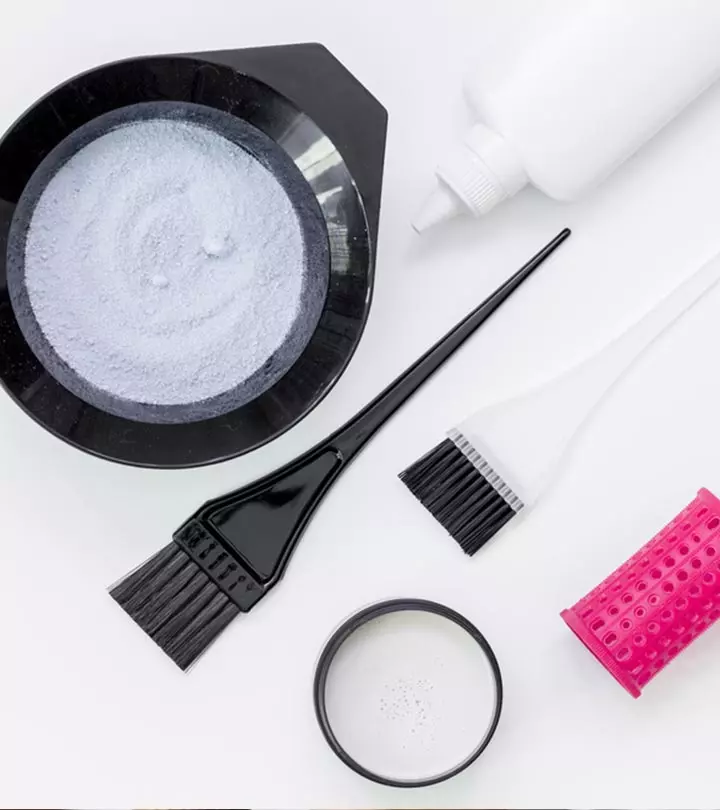

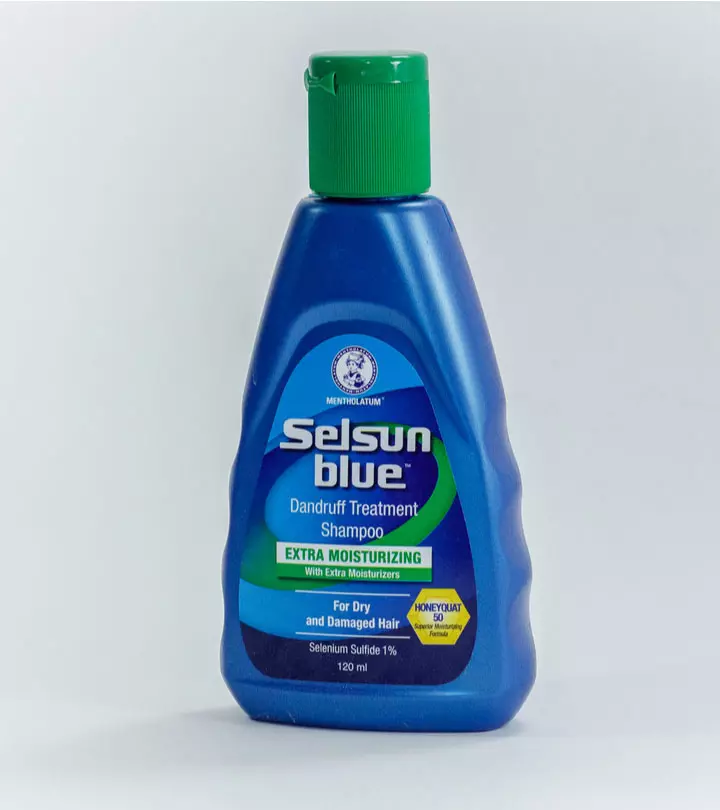
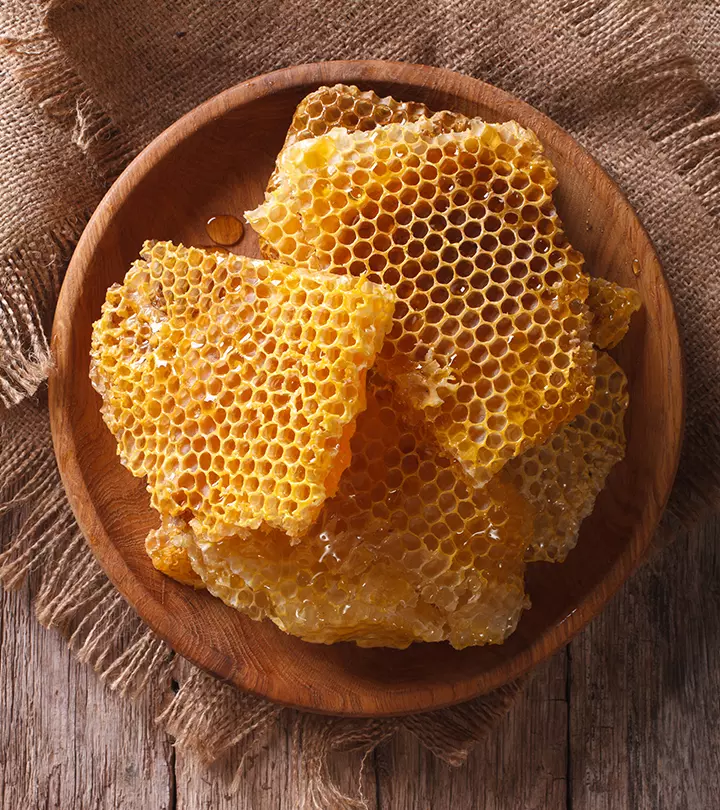
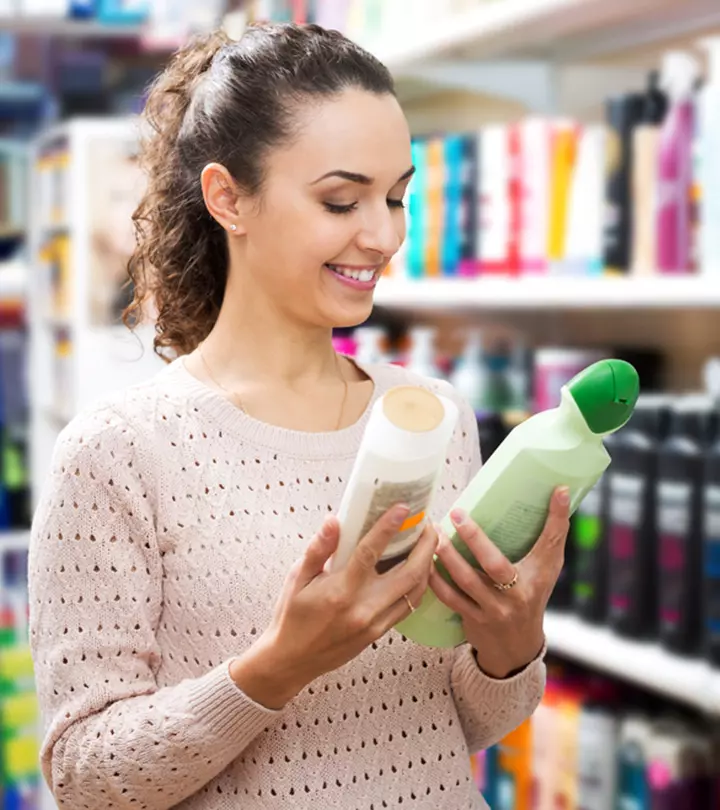
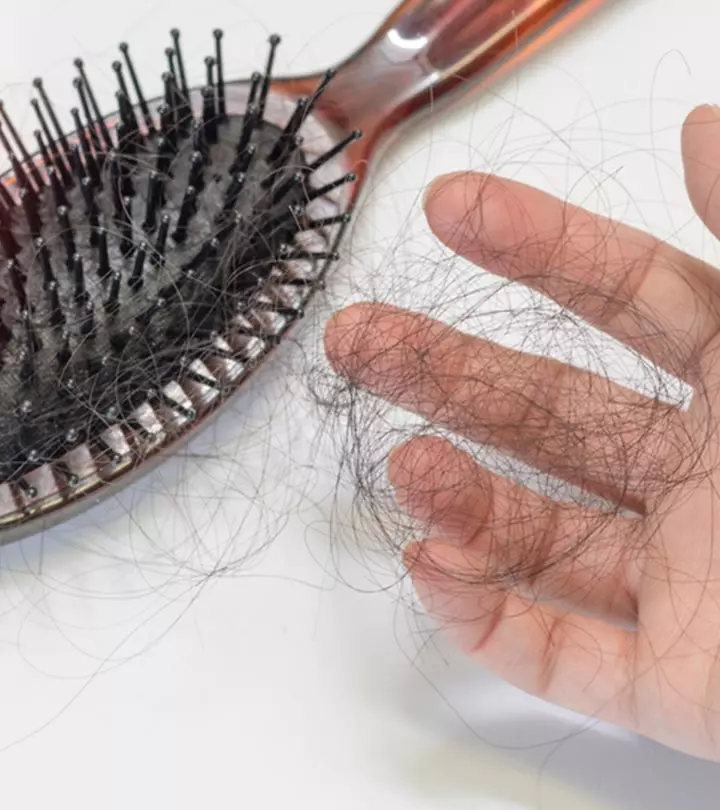
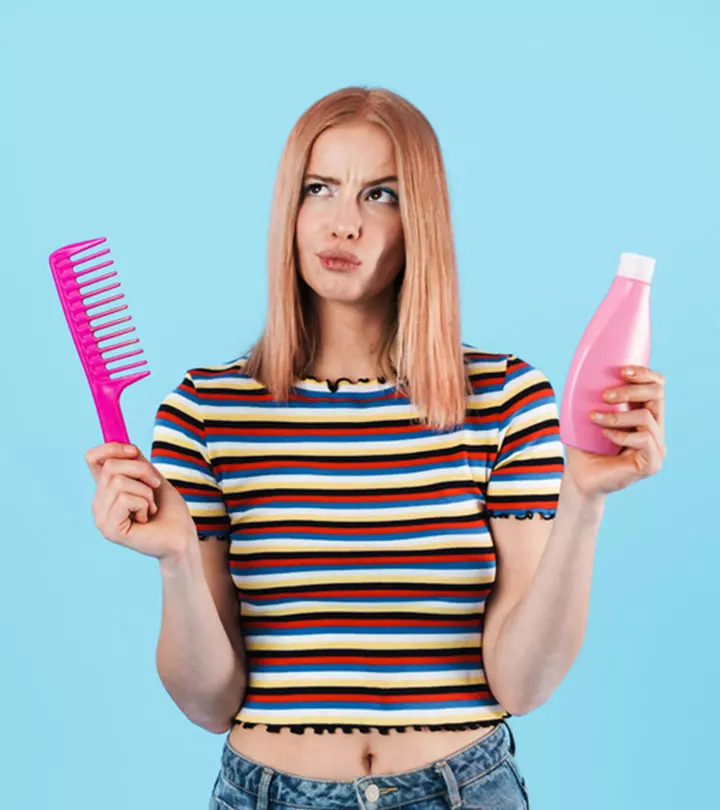
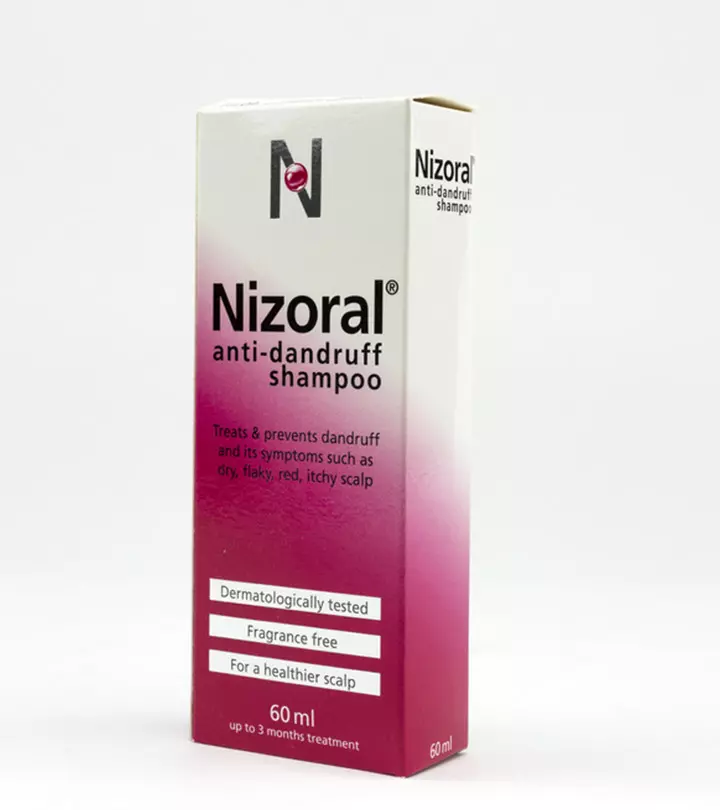

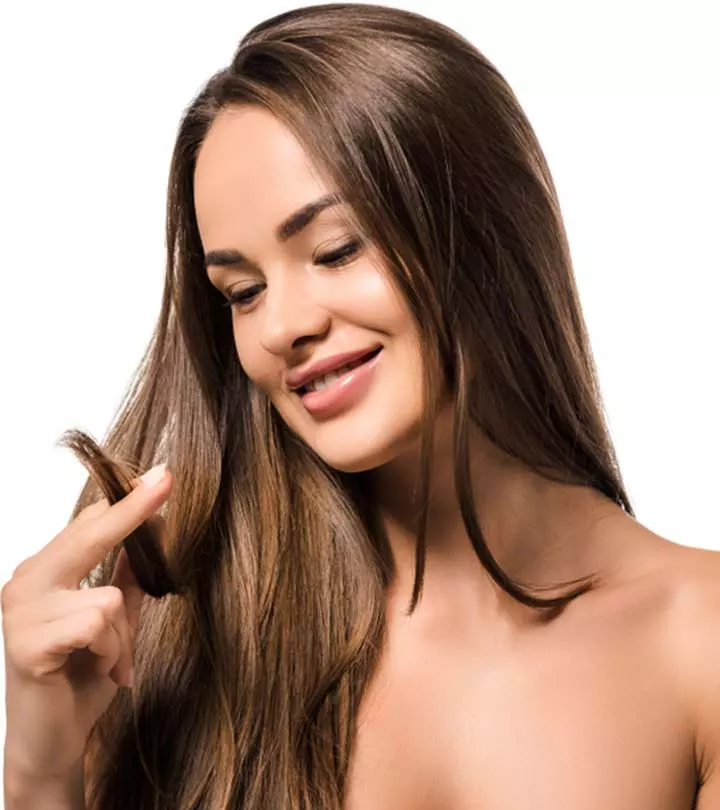


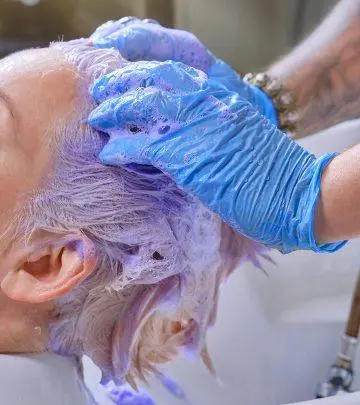

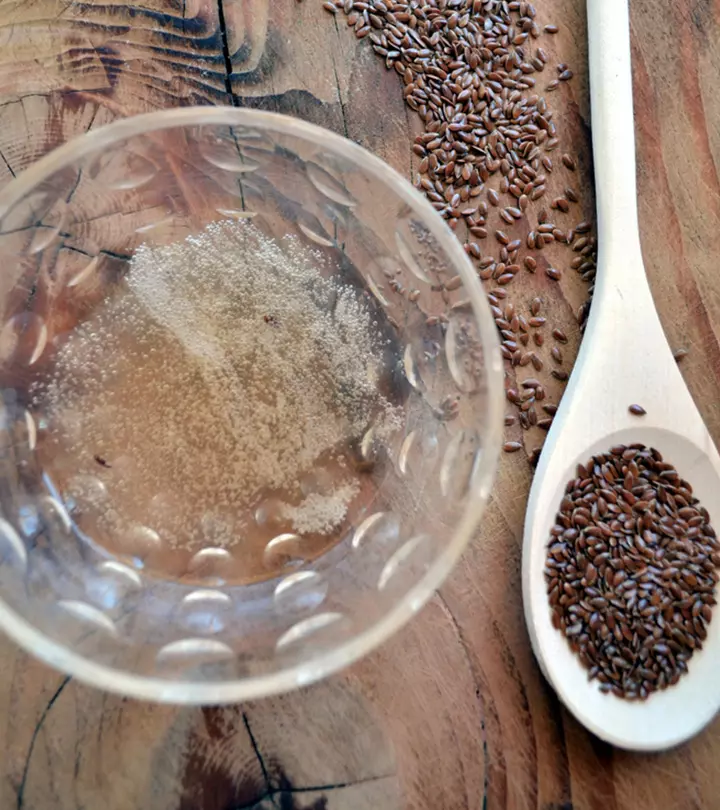






Community Experiences
Join the conversation and become a part of our empowering community! Share your stories, experiences, and insights to connect with other beauty, lifestyle, and health enthusiasts.